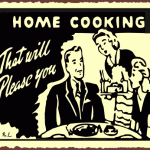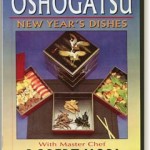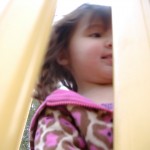 Dear Colleen,
Dear Colleen,
I’ve been thinking a lot about your latest post, “Friend to Foodies.” I like to think that you wrote much of it with a gently mocking affection for your foodie friends, me included.
I am guilty of much of what you describe: homemade jam (check) and cakes (check); farmer’s markets (check); reusable shopping bag, (check, but recycled plastic); Facebook status updates advertising what we are eating for dinner (check). Here’s the passage that I thought about the most:
“But alas, foodies are indeed everywhere. And now, thanks to social media, I get to hear what all of you food enthusiasts are up to, which is like 90% cool, and 10% annoying because you make it sound so effortless, like you are lazily sipping on chardonnay, throwing together ingredients from your garden for your adoring friends and loved ones…who will clap as you plate the food.”
I wanted to talk about the 10% annoying part a bit, because I recognize that feeling. I think this part says a lot about how we think about ourselves as working parents, as working mothers, and a lot about what’s not said. There are so many ways to judge ourselves and each other.
See, what struck me about these two identities, working parent and eater/foodie, is that both involve an endless daily supply of incredibly personal decisions. Most of us try the best we can. We try to make our lifestyle reflect our values and priorities, but we can’t be successful in every single decision that we make. The academic in me, heck, even the writer in me, says that there are larger conversations to be had. So, let’s talk about the menu status updates first.
Confession #1: In my household we make time to cook, and grocery shop, but far less time to clean.
I know my menu updates on Facebook might sound, as menus do, like lovely descriptions. But, like menus and status updates, they are just the tip of the iceberg lettuce of life. Some of our meals do take a fair amount of work, and preparation, and hours of grocery shopping, all of which I enjoy most days of the week. I’m lucky that I love cooking and grocery shopping; I can’t imagine how difficult home cooking would feel if I didn’t.
Sometimes the menu status updates are elaborate because the meals do take a great deal of time and preparation. Arroz con pollo is one of our favorite meals, but it takes at least a couple of hours and several stages, involving chopping, marinating, simmering, and baking. On some days I wonder why I succumb to my craving for elaborate or time-intensive dishes, if I have to cook them.
But more often than not, the menu status updates are my ways to focus and meditate: a space to find calm and quiet amidst the whirl of activity that is our house between 4 and 7 PM most days. On good days, this might involve gleeful screams, an ABBA dance party, and several thundering laps around our dining room, kitchen, living room, and hallway. On not-so-good days, this might involve several tearful pleas for “chocky milk,” or just one more Bugs Bunny cartoon, or the clattering of fifty plastic blocks from the Duplo table. Most days are a healthy mix of both. Writing a menu status update can be my therapeutic reminder that I’m looking forward to a good meal, and that makes me happy.
So these status updates help me to relax. But they also mean that the more time I am cooking and baking, the less time I am cleaning. I know people don’t usually status-update a beautifully clean living room, but when I see those living rooms in houses I visit, especially those houses where people have small children, I think about how effortless they seem.
And that’s when I understand the “90% cool, 10% annoying” ratio. These living rooms look amazing. I envy their peace. But how do these families time find to keep it clean? Like you, I envy, but my envy involves that mythical clean and organized family who never has to clear off the table before they eat; who stores every toy in its original box in its proper basket on its designated shelf; who never finds pretzel crumbs and dried cranberries in their sofa cushions. My house is, let’s just say, far from immaculate. We make lots of time to cook, with family expeditions to various grocery stores, but far less time to clean.
I have similar feelings about the crafty–mom blogs that I read. I love seeing what these women create, and yet I wonder how they have enough time and energy, much less a clear-enough workspace. Doesn’t it make you feel better when, occasionally, the cracks show through the seemingly perfect narrative? When they admit that they too, need time to breathe?
I have more confessions to make “behind the status updates” (I’m a picky eater! My kids are kind of picky, too! I use convenience foods along with from-scratch foods!). For now, though, I wanted to know what you thought about this column, “Busy Signal: The Very Busy Home Cook.” I loved so much of what Pete Wells had to say: what time constraints and energy levels look like in households with several small children and two working parents, what houses look like where the breadwinners’ work does not get “left at the office.” I loved the idea of not shaming “those who do not have the time to cook,” and I even loved the idea of better processed food.
I know that there are privileges in our two-income lifestyle. (Kudos to the single parents out there. A fist-bump to all those folks looking for a job. Gratitude to those who volunteer and work at places like food banks.) And yet with all due respect, I wondered if folks would have responded differently had Wells been a working mother writing this line: “I have definitely learned something about cooking for a family at the end of a day spent in an office: It’s very, very hard to do.” Would it have had the same impact?
I look forward to hearing more about what you have to say about this combination of issues, about working and parenting and home cooking. I don’t hold myself up as a model worker or parent or home cook, but maybe there are a few anecdotes or strategies I can offer, or things that our commenters can offer. And maybe that conversation can help everybody. And I hope you’ll do the same.
–Tamiko








